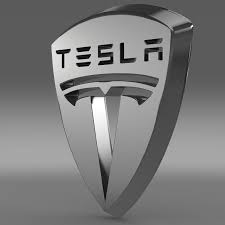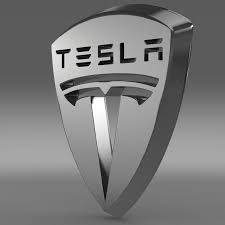
Tesla on Friday offered a new incentive to increase the sales of electric vehicles in China as it informed certain workers building battery packs at its Shanghai complex of layoffs, according to reports based on a company release and a worker who received the notification.
After signing a pact to avoid "abnormal pricing" with 15 other businesses, including Chinese EV manufacturers Nio, Li Auto, and Xpeng, Tesla announced the cash rebate offer on new cars the next day. This move was taken by some as a hint of an end to the price war that has jeopardised industry profitability.
When considered collectively, the developments show the pressure Tesla and its competitors face in the largest EV market in the world, China.
The pricing commitment that CEOs signed was organised by the China Association of Automobile Manufacturers.
People familiar with the workings of the industrial complex, which houses around 20,000 employees, claim that the layoffs won't have an impact on output at Tesla's Shanghai Gigafactory, the company's largest and most productive centre.
While a round of price reductions spearheaded by Tesla helped to increase sales early this year, analysts and executives say the rivalry has put pressure on automakers and suppliers generally to maintain costs.
Tesla announced on Friday that new purchasers of its Model Y and Model 3 vehicles would be eligible for a cash return of 3,500 yuan ($483) if they could provide proof of a recommendation from a current owner.
Separately, a worker who had received the notification of layoffs at the Tesla complex in Shanghai where battery packs are assembled claimed to have received the news.
Less than 1,000 people were employed on the factory's two battery pack production lines, according to the first report on the layoffs, which appeared on the Chinese online news portal Deep Analysis on Thursday.
On Friday, Bloomberg released a report on the layoffs, citing sources with knowledge of the situation.
The number of employees who could be fired or transferred, as well as the precise reason for the layoffs, were unclear.
There were no comments on the issue from Tesla.
According to figures revealed earlier this week, Tesla sold a record 247,217 vehicles built in China in the second quarter.
Since the company began shipping automobiles from its Shanghai manufacturing in early 2020, that number has been the highest.
Ralf Brandstatter, the CEO of Volkswagen China, stated last month at an event where Premier Li Qiang was present that China's EV market was characterised by "high price discounts" and "an unhealthy competitive environment."
Hyundai Motor, the third-largest automaker in the world by sales, announced last month that it will close a facility in China and try to sell it together with a factory that it closed the previous year.
This week, consulting firm Alix Partners predicted that while China's EV market will expand quickly going forward, a shakeout would also be caused by more competition and surplus capacity.
According to the firm, only 25 to 30 out of the 167 companies registered to manufacture EVs or plug-in hybrids in China will remain in business by 2030.
The company also predicted that 2023 will be a first, with Chinese brands making up over 50% of all vehicles sold in their home market.
For the past 40 years, well-known international brands like VW that operate in joint ventures with Chinese partners have dominated the auto market in China.
Tesla is the only international automaker without a local partner running a facility.
Since the beginning of 2023, Tesla has reduced the base price of the Model 3 sedan by 14% in China and the base price of the Model Y, its best-selling product worldwide, by 10%.
Tesla also announced on Friday that its Enhanced Autopilot driver-assistance system would be accessible to new customers for free for 90 days.
The new incentives were revealed by Tesla on its Weibo account. It is continue to offer 7,000 Yuan discounts to purchasers of its more expensive Model S and Model X vehicles, as it did in June.
On Friday, some Tesla owners shared their referral codes online and encouraged others to use them, indicating that the new cash refund would be readily accessible to prospective customers.
Over half of Tesla's deliveries worldwide during the second quarter came from sales of Shanghai-made vehicles.
Investors responded to signs that the company's global price reductions and U.S. government incentives were boosting sales and believed the EV manufacturer would be able to stabilise its profit margin over time. As a result, the company's shares have increased by roughly 70% since early May.
Tesla reduced the cost of the Model 3 and Model Y earlier this week in Japan by 3% to 4%.
(Source:www.nasdaq.com)
After signing a pact to avoid "abnormal pricing" with 15 other businesses, including Chinese EV manufacturers Nio, Li Auto, and Xpeng, Tesla announced the cash rebate offer on new cars the next day. This move was taken by some as a hint of an end to the price war that has jeopardised industry profitability.
When considered collectively, the developments show the pressure Tesla and its competitors face in the largest EV market in the world, China.
The pricing commitment that CEOs signed was organised by the China Association of Automobile Manufacturers.
People familiar with the workings of the industrial complex, which houses around 20,000 employees, claim that the layoffs won't have an impact on output at Tesla's Shanghai Gigafactory, the company's largest and most productive centre.
While a round of price reductions spearheaded by Tesla helped to increase sales early this year, analysts and executives say the rivalry has put pressure on automakers and suppliers generally to maintain costs.
Tesla announced on Friday that new purchasers of its Model Y and Model 3 vehicles would be eligible for a cash return of 3,500 yuan ($483) if they could provide proof of a recommendation from a current owner.
Separately, a worker who had received the notification of layoffs at the Tesla complex in Shanghai where battery packs are assembled claimed to have received the news.
Less than 1,000 people were employed on the factory's two battery pack production lines, according to the first report on the layoffs, which appeared on the Chinese online news portal Deep Analysis on Thursday.
On Friday, Bloomberg released a report on the layoffs, citing sources with knowledge of the situation.
The number of employees who could be fired or transferred, as well as the precise reason for the layoffs, were unclear.
There were no comments on the issue from Tesla.
According to figures revealed earlier this week, Tesla sold a record 247,217 vehicles built in China in the second quarter.
Since the company began shipping automobiles from its Shanghai manufacturing in early 2020, that number has been the highest.
Ralf Brandstatter, the CEO of Volkswagen China, stated last month at an event where Premier Li Qiang was present that China's EV market was characterised by "high price discounts" and "an unhealthy competitive environment."
Hyundai Motor, the third-largest automaker in the world by sales, announced last month that it will close a facility in China and try to sell it together with a factory that it closed the previous year.
This week, consulting firm Alix Partners predicted that while China's EV market will expand quickly going forward, a shakeout would also be caused by more competition and surplus capacity.
According to the firm, only 25 to 30 out of the 167 companies registered to manufacture EVs or plug-in hybrids in China will remain in business by 2030.
The company also predicted that 2023 will be a first, with Chinese brands making up over 50% of all vehicles sold in their home market.
For the past 40 years, well-known international brands like VW that operate in joint ventures with Chinese partners have dominated the auto market in China.
Tesla is the only international automaker without a local partner running a facility.
Since the beginning of 2023, Tesla has reduced the base price of the Model 3 sedan by 14% in China and the base price of the Model Y, its best-selling product worldwide, by 10%.
Tesla also announced on Friday that its Enhanced Autopilot driver-assistance system would be accessible to new customers for free for 90 days.
The new incentives were revealed by Tesla on its Weibo account. It is continue to offer 7,000 Yuan discounts to purchasers of its more expensive Model S and Model X vehicles, as it did in June.
On Friday, some Tesla owners shared their referral codes online and encouraged others to use them, indicating that the new cash refund would be readily accessible to prospective customers.
Over half of Tesla's deliveries worldwide during the second quarter came from sales of Shanghai-made vehicles.
Investors responded to signs that the company's global price reductions and U.S. government incentives were boosting sales and believed the EV manufacturer would be able to stabilise its profit margin over time. As a result, the company's shares have increased by roughly 70% since early May.
Tesla reduced the cost of the Model 3 and Model Y earlier this week in Japan by 3% to 4%.
(Source:www.nasdaq.com)














